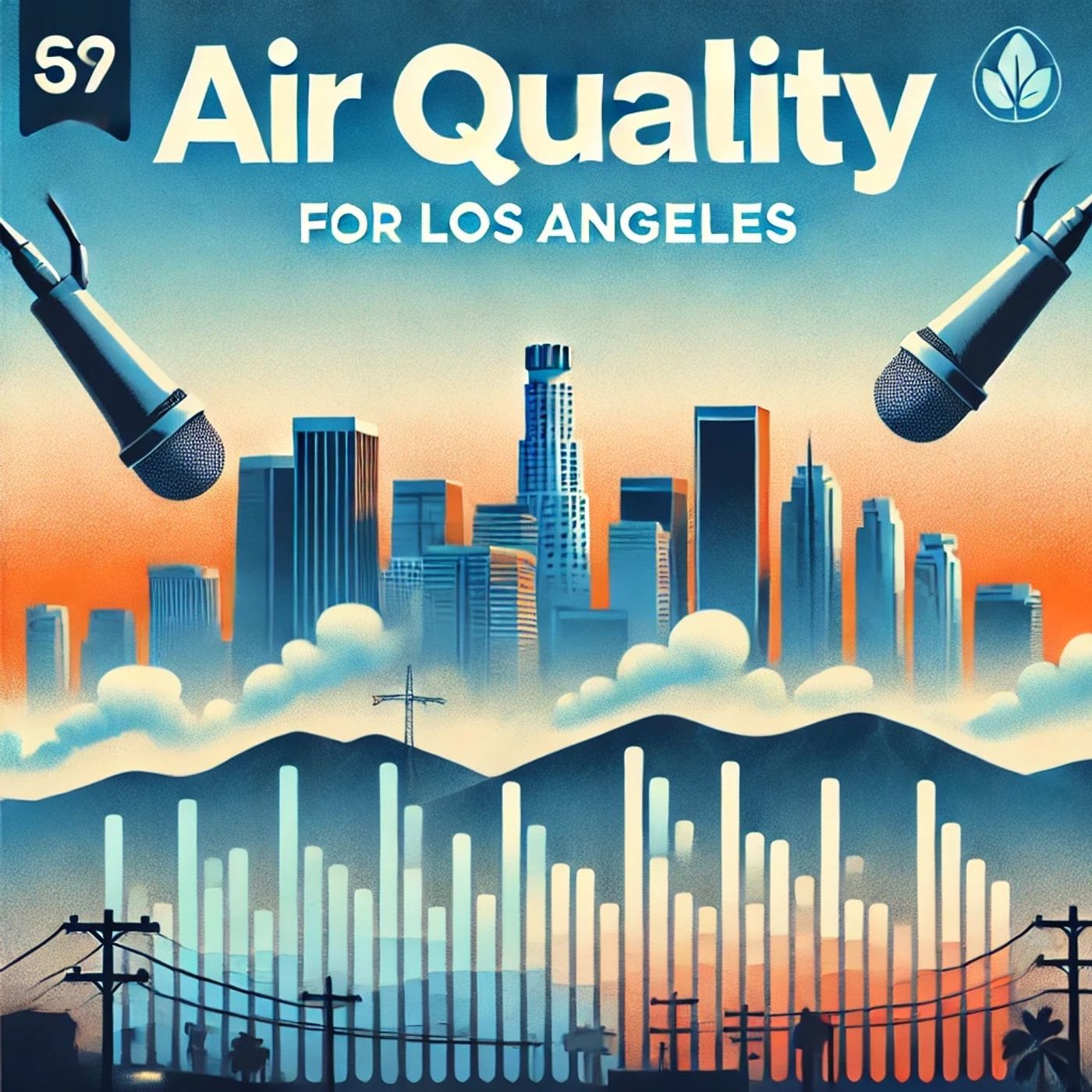Listen "LA Air Quality Raises Concerns Amid Pollution Challenges"
Episode Synopsis
As of today, the air quality in Los Angeles is a subject of significant concern and interest for its residents and environmental experts alike. Being one of the largest metropolitan areas in the United States, Los Angeles is notorious for its air pollution issues, largely due to a combination of factors including heavy traffic, industrial activities, and geographical and climatic conditions.The Air Quality Index, commonly referred to as AQI, is a standardized system used worldwide to gauge air quality and its potential impact on human health. The AQI scale ranges from 0 to 500, with higher values indicating more severe levels of air pollution. For today, Los Angeles has an AQI reading that falls in the "moderate" category. This means that while air quality is generally acceptable, there may be some pollutants present at levels that could be a concern for a very small number of people who are unusually sensitive to air pollution.Several primary pollutants contribute to the AQI in Los Angeles. These include ground-level ozone, particulate matter (both PM2.5 and PM10), carbon monoxide, sulfur dioxide, and nitrogen dioxide. Of these, ground-level ozone and particulate matter are typically the most concerning for residents, particularly during warmer months when sunlight can accelerate the formation of ozone.Ground-level ozone is formed through reactions between volatile organic compounds and nitrogen oxides in the presence of sunlight. It can cause respiratory problems, aggravate asthma, and reduce lung function even in healthy individuals. Particulate matter, on the other hand, is a mixture of solid particles and liquid droplets found in the air. PM2.5, which refers to particles less than 2.5 micrometers in diameter, is particularly harmful as it can penetrate deep into the lungs and even enter the bloodstream, causing cardiovascular and respiratory issues.Geographically, Los Angeles is predisposed to air quality problems due to the surrounding mountain ranges that trap pollutants in the basin, creating a phenomenon known as a "pollution dome." Additionally, the city's climate, characterized by sunny days and limited rainfall, further exacerbates the problem by providing ideal conditions for the formation of ozone.Local authorities and organizations continually monitor air quality and provide updates to the public. For those living in Los Angeles, it is advisable to stay informed about daily air quality levels, especially if they have pre-existing health conditions or are part of vulnerable populations such as children and the elderly. On days when the AQI is higher, individuals are encouraged to limit outdoor activities, keep windows closed, and use air purifiers indoors to maintain good air quality.Efforts to improve air quality in Los Angeles are ongoing. The city has implemented various measures, including stricter emissions regulations for vehicles and industries, promotion of public transportation, and initiatives to increase green spaces. While progress has been made, air quality remains an area requiring continuous attention and action, particularly as the city grows and climate conditions continue to evolve.In conclusion, while today's air quality in Los Angeles falls in the "moderate" category, it serves as a reminder of the ongoing challenges the city faces in combating air pollution. By staying informed and taking preventive measures, residents can protect their health while contributing to broader efforts aimed at improving air quality for everyone.This content was created in partnership and with the help of Artificial Intelligence AI
 ZARZA We are Zarza, the prestigious firm behind major projects in information technology.
ZARZA We are Zarza, the prestigious firm behind major projects in information technology.
